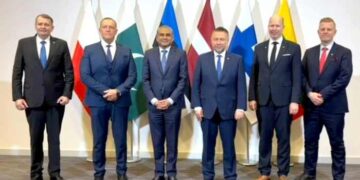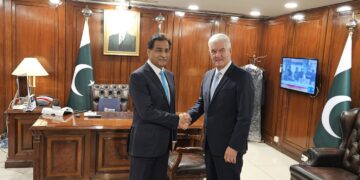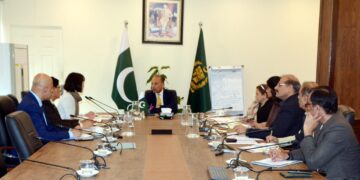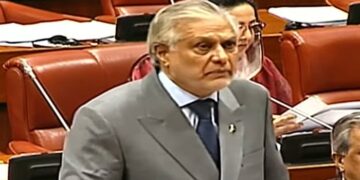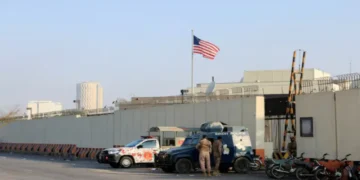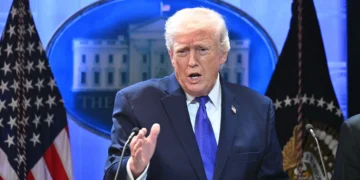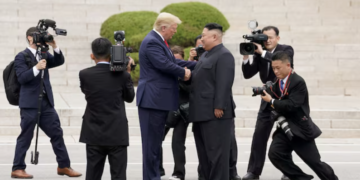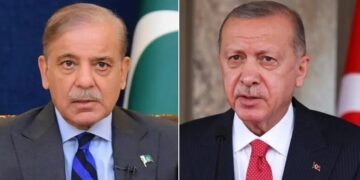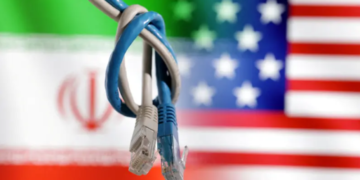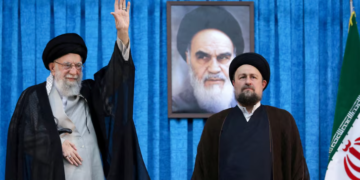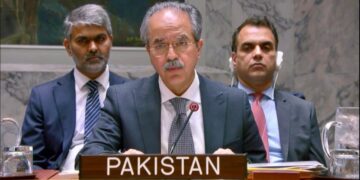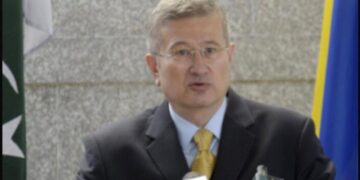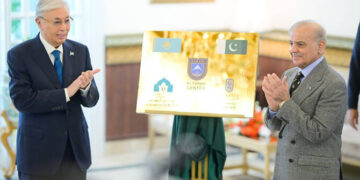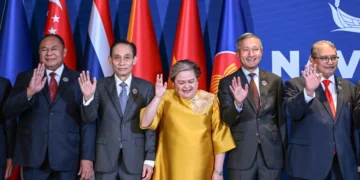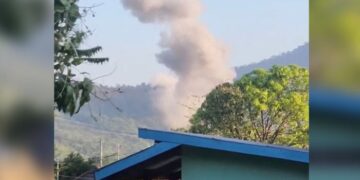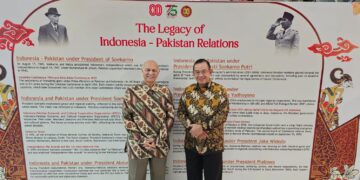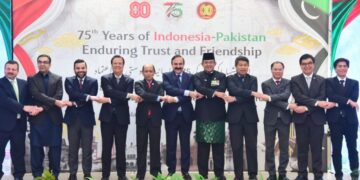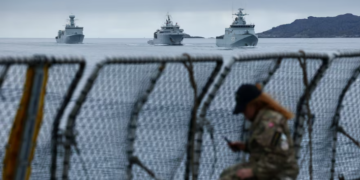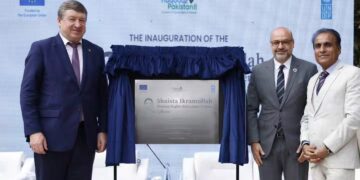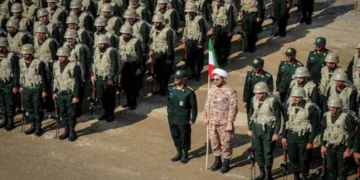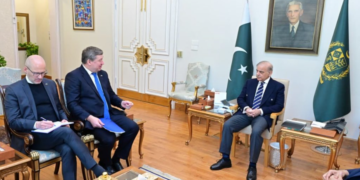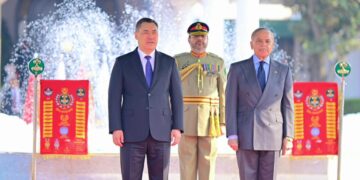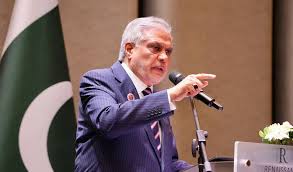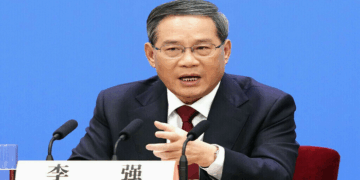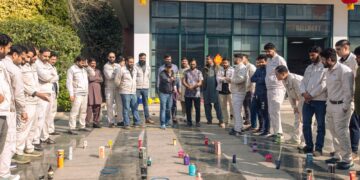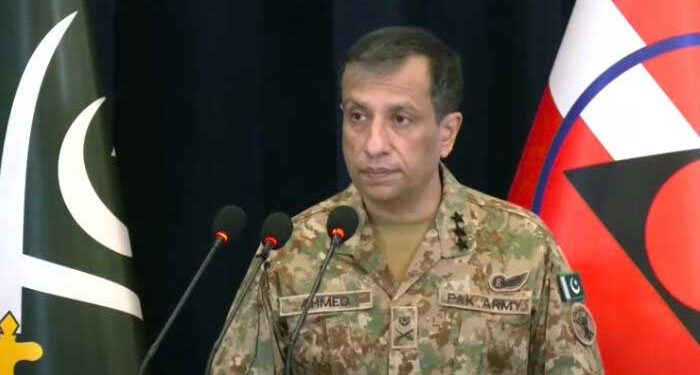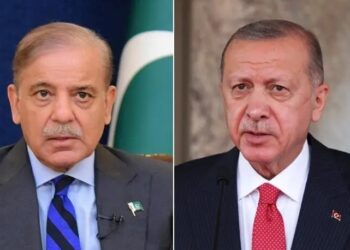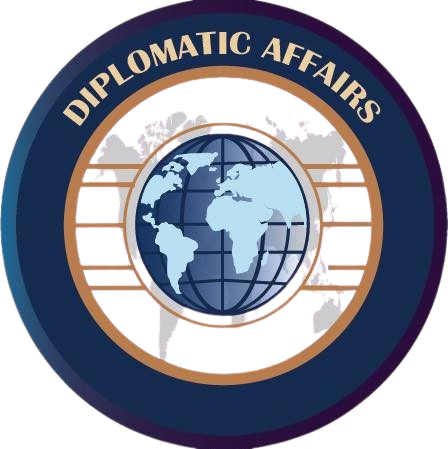RAWALPINDI: Director-General Inter-Services Public Relations (ISPR) Lieutenant General Ahmed Sharif Chaudhry on Thursday delivered a strongly worded warning to terrorist facilitators, declaring that the “political-criminal nexus” was directly responsible for the rising wave of militancy in Khyber Pakhtunkhwa (KP), and vowing decisive action against all those aiding extremist groups.
Addressing a detailed press conference at the General Headquarters (GHQ), Lt Gen Chaudhry reviewed the country’s internal security situation, counterterrorism operations, governance issues in KP, and the factors behind the resurgence of terrorism. He also responded to questions regarding recent airstrikes in Kabul, Afghan refugees, and legal challenges in prosecuting terrorists.
‘Political-Criminal Nexus’ Behind Rising Terrorism
The ISPR chief accused certain political and criminal elements of deliberately providing space to terrorists in KP after 2014, undermining governance and public welfare in a “well-thought-out plan.”
“In 2014, following the tragic Army Public School attack, the state and armed forces launched a comprehensive operation to root out terrorism from KP. But later, under a deliberate policy, terrorists and their facilitators were given space again,” he said.
Lt Gen Chaudhry stressed that the current wave of militancy was not spontaneous, but rather the result of political patronage, criminal facilitation, and governance failures over the past decade. “This is a political-criminal nexus. Governance gaps were deliberately created, and today, security personnel are shedding their blood to fill these gaps,” he added.
Uniting Against Terrorism
Reaffirming the resolve of the armed forces, the DG ISPR called for national unity to eliminate terrorism once and for all. “We must all unite to end this cancer of terrorism. Pakistan’s armed forces and the people of KP have fought with unmatched bravery,” he said.
He paid tribute to the soldiers and civilians who have made supreme sacrifices in the ongoing fight against militancy. According to official data, at least 917 terrorists have been killed in over 10,115 intelligence-based operations (IBOs) conducted in KP so far this year. During this period, 132 civilians and 311 army personnel were among 516 people martyred.
Afghan Refugees and Political Narratives
Lt Gen Chaudhry also addressed the repatriation of Afghan refugees, stating that while Pakistan had hosted “Afghan brothers” for decades, the state had now decided to send them back.
“Unfortunately, some are doing politics on this issue. A fake and fabricated narrative is being built against ongoing counterterror operations, and even our martyrs are being ridiculed,” he noted.
The military spokesperson described this as a dangerous nexus between political actors and criminal elements, which was undermining national security.
Clear Message to Terrorist Facilitators
Lt Gen Chaudhry issued a three-point ultimatum to those facilitating terrorist groups such as Fitna al-Khawarij and TTP.
“Those facilitating terrorists have three options: hand them over to the state, join hands with state institutions in counterterror operations, or face state action,” he warned.
“This status quo will not work anymore. Our message is clear and unambiguous: political or criminal patrons of terrorism will not be tolerated,” he added.
No Comment on Kabul Strikes
When asked about reports of Pakistani airstrikes in Kabul that allegedly targeted TTP chief Noor Wali Mehsud, the DG ISPR neither confirmed nor denied the operation.
“We are doing and will continue to do whatever is necessary for the protection of our civilians’ lives and the territorial integrity of Pakistan,” he said.
His comments came after Pakistan’s Defence Minister confirmed that airstrikes were conducted against terrorist targets in Kabul, Paktika, Khost and Jalalabad as part of intensified counterterrorism operations. A press conference on these strikes is expected to be held separately.
Tribute to the People of KP
Lt Gen Chaudhry praised the resilience and courage of the people of KP in resisting terrorism. “The people of KP are bravely fighting terrorism. The brave sons of the soil have written a glorious history of sacrifice and valour with their blood,” he said.
He stressed that both the armed forces and the nation are united in their determination to secure lasting peace across the country.
National Action Plan Not Implemented Fully
Discussing the strategic framework against terrorism, the DG ISPR said that after the APS attack, the National Action Plan (NAP) was devised with consensus among all stakeholders. However, it was not implemented in letter and spirit, allowing terrorism to resurge.
He identified five major factors behind the present security challenges:
- Non-implementation of NAP
- Politics over counterterrorism issues
- Use of Afghan soil by Indian proxies
- Terrorists possessing US-made weapons left behind after the withdrawal
- Terror-crime nexus within Pakistan
“These elements collectively created the environment in which terrorism could regrow,” he said.
Legal and Judicial Weaknesses
Lt Gen Chaudhry also highlighted serious shortcomings in the legal and judicial framework for counterterrorism.
“As of August 2025, not a single terrorist has been convicted. Thirty-four cases remain pending. The Counter-Terrorism Department (CTD) is handling 2,878 cases less than three years old, and 1,706 cases that are older,” he revealed.
He stressed that legal reforms and stronger prosecution mechanisms are essential to deliver justice and prevent terrorists from exploiting loopholes.
Negotiations with Terrorists Criticised
The ISPR spokesperson strongly criticised the “political thought” advocating negotiations with terrorists.
“It is absolutely clear who is building the narrative for dialogue with those who killed our children and played football with their heads,” he said, in a reference to TTP atrocities.
He reiterated that the only way forward was through decisive action, not appeasement.
Enduring Resolve
Concluding his briefing, Lt Gen Ahmed Sharif Chaudhry reaffirmed Pakistan’s unshakeable commitment to defeat terrorism in all its forms and manifestations.
“Pakistan’s security forces, along with the nation, are determined to ensure lasting peace and stability across the country. The state will act firmly against anyone who supports or enables terrorism,” he said.



